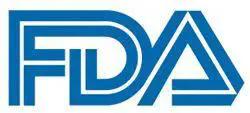News
Article
FDA Approves Pembrolizumab Plus Chemotherapy for Locally Advanced Unresectable or Metastatic Biliary Tract Cancer
Author(s):
The FDA has approved pembrolizumab (Keytruda) plus gemcitabine and cisplatin for the treatment of patients with locally advanced unresectable or metastatic biliary tract cancer.
FDA

The FDA has approved pembrolizumab (Keytruda) plus gemcitabine and cisplatin for the treatment of patients with locally advanced unresectable or metastatic biliary tract cancer.1
The decision is supported by findings from the phase 3 KEYNOTE-966 trial (NCT04003636), in which the chemoimmunotherapy combination significantly improved overall survival (OS) vs chemotherapy alone in this population. The median OS was 12.7 months (95% CI, 11.5-13.6) with pembrolizumab plus chemotherapy vs 10.9 months (95% CI, 9.9-11.6) with chemotherapy alone, translating to a 17% reduction in the risk of death (HR, 0.83; 95% CI, 0.72-0.95; one-sided P =.0034) at the prespecified final analysis for OS.2
“Cancers of the biliary tract can be highly aggressive tumors, underscoring the need for additional treatment options for the growing number of patients facing this challenging disease,” Robin Kate Kelley, MD, professor of clinical medicine in the division of hematology/oncology, University of California, San Francisco, stated in a press release. “Today's approval of pembrolizumab in combination with chemotherapy offers patients with locally advanced unresectable or metastatic biliary tract cancer a new immunotherapy regimen that has demonstrated the potential to help these patients live longer.”
The multicenter, double-blind, randomized, placebo-controlled KEYNOTE-966 trial enrolled 1069 patients with locally advanced unresectable or metastatic biliary tract cancer who had not previously received systemic treatment for advanced disease.
Study participants were randomly assigned in a 1:1 fashion to receive intravenous placebo (n = 536) or pembrolizumab (n = 533) at 200 mg on day 1 paired with gemcitabine at 1000 mg/m2 and cisplatin at 25 mg/m2 on days 1 and 8 every 3 weeks (n = 533).
Treatment continued until intolerable toxicity or disease progression. The immunotherapy was continued for up to 35 cycles or approximately 24 months. Gemcitabine could be continued beyond 8 cycles, but cisplatin could only be given for a maximum of 8 cycles.
Notably, patients could still receive the chemoimmunotherapy regimen beyond disease progression by RECIST criteria if the patient was clinically stable and determined by the investigator to be deriving clinical benefit.
OS served as the trial's primary end point. Other key efficacy outcome measures included progression-free survival (PFS), objective response rate (ORR), and duration of response (DOR) by blinded independent central review (BICR) assessment and in accordance with RECIST v1.1 criteria, modified to follow a maximum of 10 target lesions and a maximum of 5 target lesions per organ.
Previous data from the prespecified final analysis for PFS and ORR revealed that the addition of pembrolizumab to chemotherapy resulted in a numerical, but not statistically significant improvement, in PFS vs chemotherapy alone in this population. The median PFS in the pembrolizumab arm was 6.5 months (95% CI, 5.7-6.9) vs 5.6 months (95% CI, 5.1-6.6) with chemotherapy alone (HR, 0.86; 95% CI, 0.75-1.00).
Pembrolizumab plus chemotherapy elicited an ORR of 29% (95% CI, 25%-33%) vs 29% (95% CI, 25%-33%) with chemotherapy alone. Among those who responded to the pembrolizumab regimen, 2.1% achieved a complete response (CR) and 27% experienced a partial response; these rates were 1.3& and 27%, respectively, with chemotherapy alone.
Patients received pembrolizumab for a median duration of 6 months (range, 1 day to 28 months). Fifteen percent of patients discontinued the immunotherapy due to toxicity, the most common of which was pneumonitis (1.3%).
Adverse effects (AEs) resulted in dose interruption of pembrolizumab for 55% of patients; these included reduced neutrophil count (18%), reduced platelet count (10%), anemia (6%), decreased white blood count (4%), pyrexia (3.8%), fatigue (3.0%), cholangitis (2.8%), increased alanine aminotransferase (ALT; 2.6%), increased aspartate aminotransferase (AST; 2.5%), and biliary obstruction (2.3%).
A difference of 5% or higher incidence in adverse reactions were observed between patients who received pembrolizumab vs placebo with regard to pyrexia (26% vs 20%), rash (21% vs 13%), pruritus (15% vs 10%) and hypothyroidism (9% vs 2.6%). Notably, no clinically meaningful differences in incidences of grade 3 or 4 AEs were observed between arms.
A difference of at least a 5% incidence in laboratory abnormalities between patients who received pembrolizumab plus chemotherapy vs placebo plus chemotherapy was reported with regard to decreased lymphocytes (69% vs 61%). Again, no clinically meaningful differences in incidences of grade 3 or 4 toxicity were reported between the treatment arms.
References
- FDA approves Merck's Keytruda (pembrolizumab) plus gemcitabine and cisplatin as treatment for patients with locally advanced unresectable or metastatic biliary tract cancer. News release. November 1, 2023. Accessed November 1, 2023. https://www.merck.com/news/fda-approves-mercks-keytruda-pembrolizumab-plus-gemcitabine-and-cisplatin-as-treatment-for-patients-with-locally-advanced-unresectable-or-metastatic-biliary-tract-cancer/
- Kelley RK, Yoo C, Finn RS, et al. Pembrolizumab (pembro) in combination with gemcitabine and cisplatin (gem/cis) for advanced biliary tract cancer (BTC): phase 3 KEYNOTE-966 study. Presented at: 2023 AACR Annual Meeting. April 14-19, 2023; Orlando, FL. Abstract CT008.








